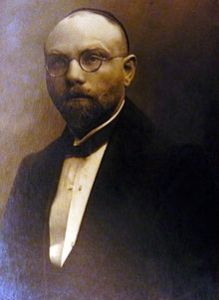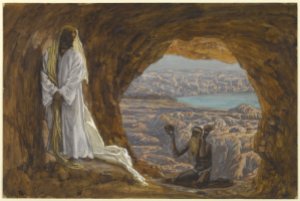TO A YOUNG FISHERMAN
Fairer still than a rose, your cheeks aglowing,
Your feet more graceful than a tulip’s stem
And in your eyes there sparkled like a gem,
For friendship, such an infinite deep longing.
Behind us was the endlessness of the sea,
Above us greyly gazed the endless light,
We two stood on the strand, so solit’ry,
With just the sea’s smell. No-one was in sight.
Last day together, townwards I remove.
Contentedly he fishes, while I brood
And find no peace in fields nor city streets.
I am exhausted, so many loves I’ve had.
Forgive me much, ask not what I withstood
And pray your beauty ne’er my will defeats.
By Jacob Israël de Haan, 1917, translated from the Dutch by Gerry Lynch.
 This poem is famous as the last line of the first stanza adorns Amsterdam’s Homomonument. Jacob Israël de Haan (1881-1924), its author, was a human rights activist avant la lettre and a very out gay man indeed by the standards of his time. He was also a devoutly religious Jew who emigrated to Israel after the end of World War One, ended up the political spokesman of the Haredi community in Jerusalem and was assassinated by a member of the Haganah. His Wikipedia entry is worth a read! As well as his famous gay poems, he travelled extensively by train in England in the early 1910s, and wrote some charming poems in Dutch on his English experiences.
This poem is famous as the last line of the first stanza adorns Amsterdam’s Homomonument. Jacob Israël de Haan (1881-1924), its author, was a human rights activist avant la lettre and a very out gay man indeed by the standards of his time. He was also a devoutly religious Jew who emigrated to Israel after the end of World War One, ended up the political spokesman of the Haredi community in Jerusalem and was assassinated by a member of the Haganah. His Wikipedia entry is worth a read! As well as his famous gay poems, he travelled extensively by train in England in the early 1910s, and wrote some charming poems in Dutch on his English experiences.
I have started and failed to finish translating this poem for close to a decade. Rupert Moreton is translating many Russian and Finnish poems at the moment and inspired me to finally get it done. Continue reading










